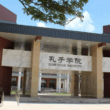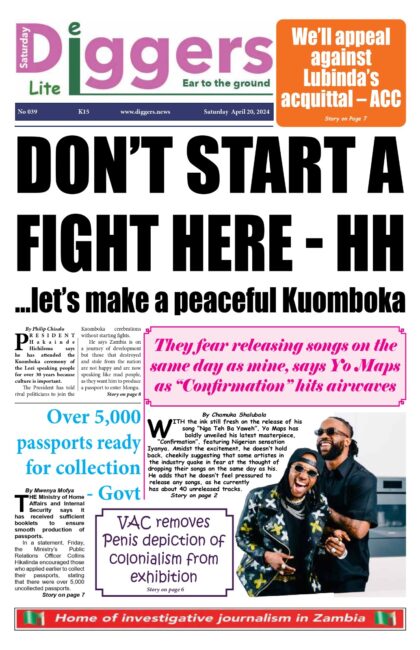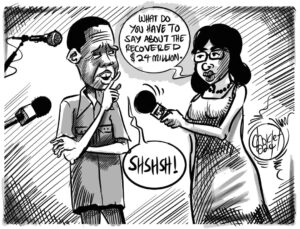On Wednesday, October 10, 2018, Monze Central UPND member of parliament Jack Mwiimbu raised a point of order in Parliament, questioning why the minister had allowed Times of Zambia Newspaper to be publishing articles in Chinese, a move he said was discriminatory against Zambian languages.
But Honourable Dora Siliya, who is also Chief Government spokesperson, confidently told the National Assembly last Tuesday that this decision was actually discussed and passed by the directors of Times of Zambia following a strategic Board resolution to improve newspaper sales.
“Mr Speaker, in 2015, the Board and management of Times of Zambia began to explore various ways to raise resources for the company. Among the strategies identified was to attract new business through subscription and advertising targeted at new commercial communities in Zambia, such as the Turkish, the French-speaking and the Chinese communities. It is in this regard, Mr Speaker, that the decision to translate and reproduce some carefully selected stories of the day in Mandarin was arrived at. The Times of Zambia hopes this will expose the paper to potentially new income from a community that would not necessarily be attracted to it because of language barrier,” said Siliya.
“Mr Speaker, the alleged discrimination against the people of Zambia does not arise. Mr Speaker, English is the official language of Zambia, the language in which the Times of Zambia Newspaper has always been published. Let me emphasise once again that all stories published in Mandarin are translated from the English version in the same copy.”
We think the minister missed the context of the point of order that Honourable Mwiimbu raised. Or perhaps she actually knows what the Monze MP was asking, but she simply dodged the question because the Petauke MP is very good at escaping intricate debates.
In our view, and without putting words in Honourable Mwiimbu’s mouth, what the UPND lawmaker was trying to find out was why the government-funded newspaper found it reasonable to translate some articles in Chinese and not in Nyanja, Lozi, Bemba, Tonga or any of the commonly spoken local languages in order to attract people who speak these dialects to buy the newspaper.
Honourable Mwiimbu was not suggesting that the Chinese articles contain insulting or discriminatory messages against Zambians. So, Honourable Siliya’s response fell short of what was expected from her. In fact, she raised more discriminatory questions in her answer because she made it clear that it is the affluent communities like the French and Turkish, which we must expect the Times of Zambia to publish in; but not in any languages spoken by Zambian communities that can’t read English.
What Honourable Siliya doesn’t realize is that she is actually suggesting that government, through the Times of Zambia, cares more about these Chinese nationals because they have money to buy newspapers, compared to the poor Zambians who can’t afford it. This is the discrimination that Honourable Mwiimbu was talking about.
The minister was further suggesting that the number or population of Chinese nationals living in Zambia is now so high that if they don’t read the Times of Zambia, it would heavily and negatively impact newspaper sales. One would have thought that Zambia has more Bembas, Nyanjas, Tongas and Lozis who deserve this courtesy from their national newspaper, which they fund through taxes. One would have thought that it was more beneficial to the country in the long-term if local communities in the far-flung areas would be incorporated in the news discourse.
This decision is very strange coming from a government that has introduced the vernacular New Breakthrough Method to Literacy (NBTL) in the school curriculum; it is very discriminatory coming from a government that wants to promote a reading culture and promote national discourse on state affairs.
If Honourable Siliya and Times of Zambia recognizes that English is the official language for Zambia, which indigenous citizens must learn in order to read news, then how special are the Chinese that they are allowed to impose their own national language in a State-owned newspaper in Zambia? It is very strange that rather than encouraging the Chinese to learn the host’s official or national language, it is the government that is bending its rules to accommodate the Chinese national language! This is the Chinese influence that Zambians have been complaining about, which is worse than the colonial masters.
In case Honourable Siliya’s media studies have become so rusty and subdued by politics, we wish to remind her that even our colonial state published a newspaper called “Mutende” in those four languages before Zambia was born between 1936 and 1964. Unfortunately, after Kaunda’s administration abolished that media policy in a quest to promote the ‘One Zambia One Nation’ motto, no subsequent government thought it wise to reverse this decision.
But our point remains that, if even the colonial State recognized the need to inform the people in their indigenous languages, why then must our own government go out of its way to satisfy the social demands of a foreign community while neglecting its own citizens? This is sad for the poor citizens. At this point, we can confidently say that our colonial-funded Mutende newspaper was even more considerate of its captured population than the Chinese/State-owned Times of Zambia.
Dear Honourable Mwiimbu, your question was straightforward. Is the minister in order to allow the publication of Mandarin news in Times of Zambia? The answer is no! Honourable Siliya is outrageously out of order and deserves to be reprimanded together with the hopeless board of directors that approved this decision.












